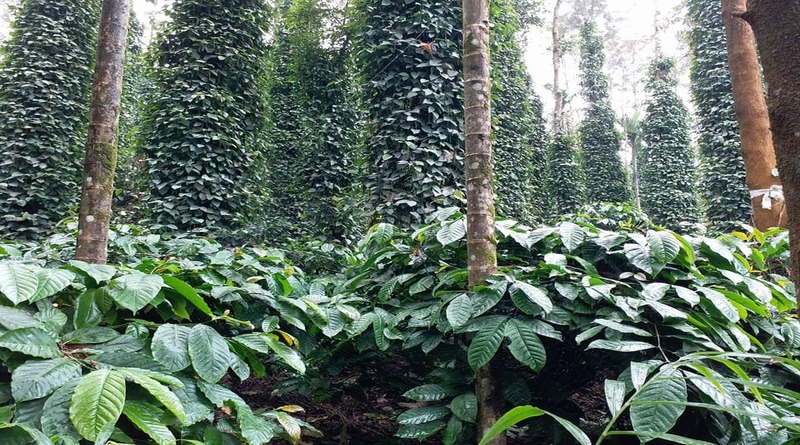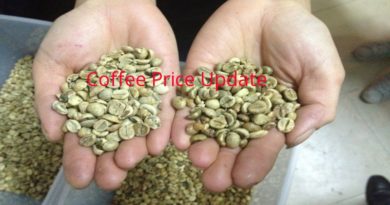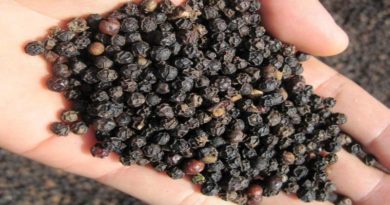Chikmagaluru Pepper Grower Wins Best Award from International Pepper Community
B.H. Sreekantha of Vijayashree Plantations, Chikmagalur, Karnataka win the award given for the best pepper grower among many farmers across various countries from International Pepper Community.
Scientific Cultivation Practices
The plantation fallows timely advice from scientists to enhance their black pepper growth and yields like scientific water management and timely fertilisation and manuring.
The estate owes its success to the scientific cultivation practices advocated by the scientists of ICAR-IISR Regional Station, Appangala.
Difficulties in growing pepper in Tarikere
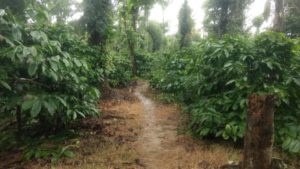
Vijayashree plantation is situated in Yemmedoddi village in Tarikere taluk, which is considered as the dry belt of Chikmagaluru district.
The cultivation of pepper in this area is very difficult due to its climate where maximum temperature goes above 41°C and scanty rainfall .
Black pepper requires adequate rainfall and high humidity, its successful cultivation in a low rainfall area comes as a pleasant surprise, according to Nirmal Babu, the director at the Indian Institute of Spices Research in Kozhikode.
The farmer owes his success to scientific water management and timely fertilisation and manuring.
About Plantation and cultivation
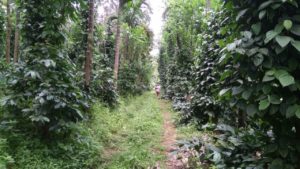
Covering an area of 15 hectares, this estate has 6,444 black pepper vines (seven years old) of Panniyur-1 variety.
Since water is a limited resource due to low rainfall, a major focus here is on conserving moisture in the soil by digging shallow trenches, mulching with compost and dry leaf and supplementing irrigation through drip system using water from a borewell and a pond.
Integrated nutrient management is a major hallmark of this estate wherein a perfect cocktail of chemical and biologicals is used.
“They apply 300 g/vine of 19:19:19 about three times a year and organic manures like farmyard manure mixed with Trichoderma (15 kg/vine/ year), neem cake (2 kg/vine) and compost (10 kg/vine) are also applied every year. The vines are further supplemented with arecanut husk and cocoa rind compost prepared in the farm. Foliar spray of micronutrients is vital and disease management is crucial,” explains S.J. Anke Gowda, the head of Indian Institute of Spices Research.
The total black pepper yield for the year 2016-17 was an astonishing 59.284 tonnes, with an average yield of 9.2 kg dry per vine and per hectare average yield of 12.207 tonnes.
For details about farmer and plantation click here: Farmer’s Notebook: Cultivating Black Pepper in a Low Rainfall Area
